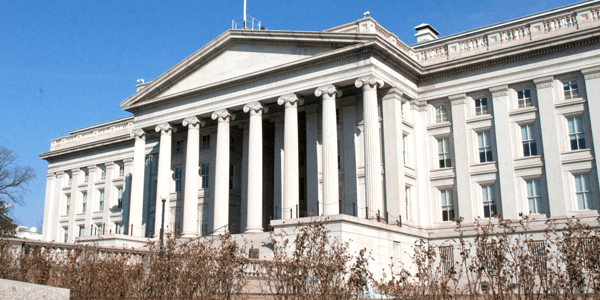Monday April 15, 2024
Washington News

Social Media Scams and Ghost Tax Preparers
Millions of taxpayers regularly view various social media sites. However, the IRS explains that there are many inaccurate or misleading tax sources on social media. This misinformation can lead taxpayers into serious scams and trouble with the IRS.
IRS Commissioner Danny Werfel stated, "Social media is an easy way for scammers and others to try encouraging people to pursue some really bad ideas, and that includes ways to magically increase your tax refund. There are many ways to get good tax information, including [following] @irsnews on social media and from trusted tax professionals. But people should be careful with who they are following on social media for tax advice."
The IRS and Security Summit partners work together with state tax agencies to protect taxpayers. They highlight a number of fraudulent strategies that are recommended on the Internet.
- Fraudulent Form W-2 — Taxpayers may be encouraged to use tax software to fill out false IRS Form W-2, Wage and Tax Statement such as a large income and withholding amount. Based on this false income and withholding, a taxpayer then files a fraudulent tax return and applies for a substantial refund.
- False Form 7202 — IRS Form 7202, Credits for Sick Leave and Family Leave for Certain Self-Employed Individuals, allows taxpayers to receive credits during 2020 and 2021. These credits are not permitted in 2023.
- Fraudulent Schedule H — Another scheme encourages taxpayers to file a false Schedule H (Form 1040), Household Employment Taxes. The taxpayer claims he or she paid sick or family medical leave wages and therefore qualifies for a refund.
- Fraudulent Form 8944 — IRS Form 8944, Preparer e-file Hardship Waiver Request, is designed to be used by professional tax preparers. It allows the taxpayer to request a waiver to file a paper tax return, rather than an electronic return. This is not used by the typical taxpayer and cannot be used to avoid tax liability. If a taxpayer applies for a refund using this form, it is likely to lead to serious consequences including civil and criminal penalties.
Qualified tax preparers are required to sign a return and include a valid preparer tax identification number (PTIN). Ghost preparers generally do not sign returns and follow other bad practices including shady fee practices, such as a cash-only payment with no receipt. The ghost preparer often will invent false income to try to increase tax credits or claim false deductions. Finally, it is a red flag if the preparer recommends sending the refund to another bank account rather than the taxpayer's bank account.
If you are aware of a ghost preparer, you can use IRS Form 14242, Report Suspected Abusive Tax Promotions or Preparers to alert the IRS.
Previous Articles
Tax Season Phishing and Smishing Scams
Ten IRS Tips To Avoid Tax Return Errors
Contact

Dr. David Fincher
Chancellor
770-243-2202

Katherine White
Vice President of Advancement
770-243-2206





